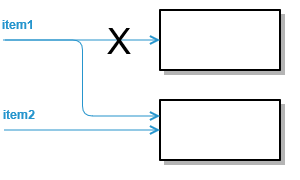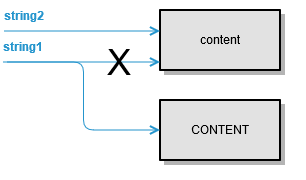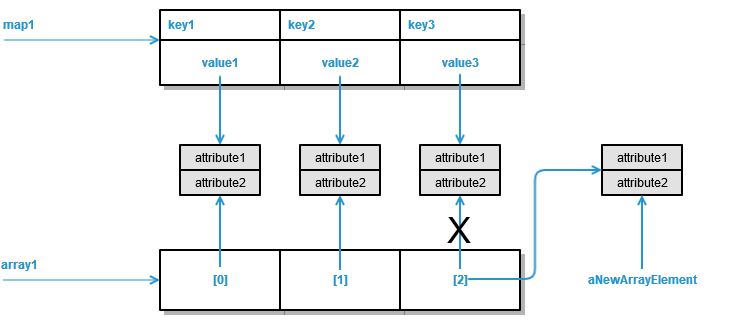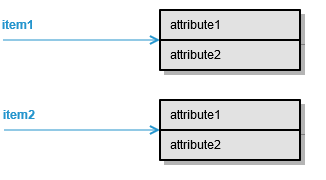Object References
The E2E Bridge uses references for all objects, for objects of Base Type (like String, Integer, ...) as well as for objects of complex type. If you have two objects of same type, for example item1 and item2, you can write set item1 = item2.

item1 gets assigned the same reference as item2 and now they are both pointing to the same object. This means, if you later on modify any attribute values of item1, object item2 will also have these changed values.
Using Base Type Methods
What happens, if you use a Base Type method, like e.g. toUpper() for type String, to change an object. You can write
set string1 = string2;
set string1 = string1.toUpper();
Will the second statement also change string2? No, and this is why:

string1.toUpper() will create a new object containing the result of the function call and string1 will point to the new object.
Arrays
The same applies to more advanced types like arrays and maps. If you have two arrays array1 and array2, you can write set array 1 = array2.

array1 is now referencing the same elements as array2 and adding elements or changes to elements of one of them will change the other array, too.
Arrays and Maps
If you have an array array1 and execute a buildMap() operation on this array, you will have the following situation:

The map values are referencing the array elements. This has the following effects:
- Changing the content of an existing array element will change the corresponding map value content, e.g.
set array1[0].attribute2 = ... - Changing the reference to an existing array element will not change the corresponding map value, e.g.
set array1[2] = aNewArrayElement; - Changing an existing map value content will change the corresponding array element content, e.g.
newValue = map1.getMapValue(key1);
set newValue.attribute2 = ... - Appending elements to the array will not affect the map and vice versa.
Independent Objects
If you want truly independent objects, use the copy() operation. Contrary to referencing objects, if you write set item2 = item1.copy(), changes in the state of item1 will not effect item2.

This will also duplicate used memory space, however.
Memory Adapter
The Memory adapter is an exception to this in such a way that all objects stored to memory are duplicated (stored as a copy), and also all objects that are retrieved from memory are stored in a copy.

Changes to item1 will not change item1_copy and vice versa.